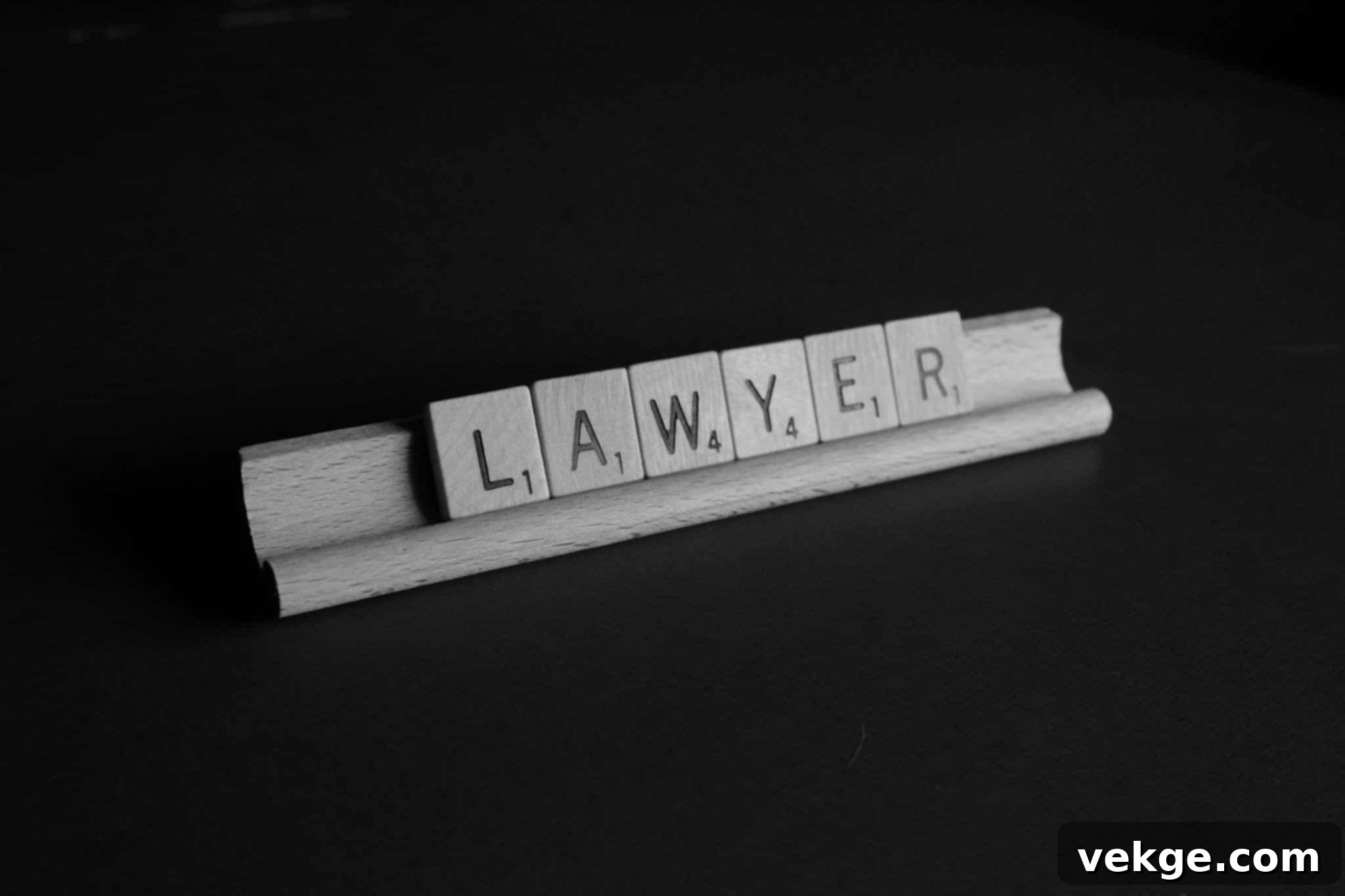Mastering Rental Property Management: Your Ultimate Guide to a Profitable & Stress-Free Investment
Becoming a landlord for a rental property can initially seem like a straightforward path to passive income. However, the reality often presents a complex array of responsibilities and challenges once the property is actively rented. Effective rental property management is not just about collecting rent; it’s about meticulously balancing the viability of your investment with your personal well-being. Dedicating the right amount of time and strategically managing expenses are crucial to maximizing your return on investment and ensuring a sustainable, profitable venture.
This comprehensive guide explores essential strategies designed to help your rental property business operate with maximum efficiency and productivity, transforming potential headaches into streamlined successes.
Strategic Time Management for Landlords
An inefficiently managed investment property often demands your attention 24/7, leading to burnout and decreased profitability. Designing an effective time management system is paramount to optimizing your role as a landlord and reclaiming your personal life. The key lies in proactive planning and intelligent delegation.
Begin by organizing specific blocks of time for recurring necessary tasks. This includes scheduling maintenance checks, handling administrative paperwork, and managing tenant communications. If you collect rent offline, designate a consistent monthly day for this task, clearly communicated to tenants. For unexpected emergency work, view it as “overtime” and compensate by adjusting other less critical property management activities, ensuring you maintain balance.
One of the most powerful tools for enhancing time management and streamlining paperwork is rental property management software. These platforms offer a wide range of features, from automating rent collection and tracking expenses to managing maintenance requests and storing important documents. Depending on the software you choose, many tasks can be significantly automated, saving you countless hours and, ultimately, money. Investing in the right software transforms reactive management into proactive oversight, allowing you to focus on growth rather than day-to-day minutiae.
Building a Robust Financial Plan
Financial preparedness is the bedrock of successful rental property ownership. An unexpected repair, such as a burst pipe or a failing HVAC system, can quickly deplete your resources if you haven’t planned ahead. Informing a tenant that you cannot afford a critical repair is not only unprofessional but can also lead to legal issues and tenant dissatisfaction. While some minor maintenance items might fall under tenant responsibility, major repairs are invariably the owner’s burden and contribute significantly to good customer service and tenant retention.
Develop a comprehensive rental finances plan that includes dedicated funds for various contingencies. Establish an emergency maintenance fund specifically for unscheduled repairs. Additionally, consider opening a line of credit as a safety net for larger, unforeseen circumstances. Equally important is accounting for vacant periods in your financial projections. Relying solely on rental income to cover property expenses or even personal living costs can lead to financial strain during tenant turnovers. A robust financial plan also necessitates separating personal and business finances entirely, ideally through dedicated banking accounts, simplifying tax season and providing a clear picture of your investment’s performance.
Effective Marketing and Property Showings
Successfully renting a property hinges on strategic marketing and well-organized showings. In a competitive rental market, how you present your property can significantly influence its appeal and the speed at which it’s rented. The goal is to make your property stand out and attract high-quality tenants.
Modern rental advertising relies heavily on online platforms. High-quality photographs are non-negotiable; consider professional photography to showcase your property in the best light. Virtual tours have also become incredibly effective, allowing prospective tenants to explore the property from anywhere. Beyond digital presence, you can schedule individual appointments for serious inquiries or host an open house, perhaps on a weekend, to maximize exposure. If time is a constraint, or if you prefer professional assistance, entrusting this task to a licensed real estate broker or property manager can streamline the process and often yield better results, connecting you with a wider pool of qualified applicants.
Rigorous Tenancy Applicant Screening
The importance of thorough tenant screening cannot be overstated. Before seriously considering any applicant, rigorous background and credit checks are absolutely essential, without exception. This critical step protects your investment by helping you identify responsible tenants who are likely to pay rent on time, maintain the property, and abide by lease terms. A comprehensive screening process should include:
- Credit History: To assess financial responsibility and payment patterns.
- Employment Verification: To confirm income stability and current employment status.
- Previous Landlord References: To inquire about payment history, property care, and tenancy conduct.
- Criminal Background Check: To ensure the safety of your property and community.
Crucially, landlords must be acutely aware of and strictly comply with all fair housing laws. These laws protect against discrimination based on race, color, religion, sex, disability, familial status, and national origin. A consistent, non-discriminatory screening process is not only a legal requirement but also a ethical practice that ensures fairness for all applicants.
Crafting Clear and Comprehensive Leasing Agreements

A well-drafted leasing agreement is your primary line of defense and a clear roadmap for both landlord and tenant. Every single term, condition, and fee must be explicitly spelled out to protect the interests of both parties and prevent misunderstandings down the line. Before presenting the lease to a prospective tenant, it is highly advisable to have a qualified lawyer review it. This ensures legal compliance with local, state, and federal housing laws and offers invaluable peace of mind.
Key elements that should be clearly defined in your lease include: the precise rent amount and due date, grace periods and late fees, security deposit details (amount, handling, and return conditions), pet policies, maintenance responsibilities for both parties, lease term, rules regarding alterations, and conditions for early termination. When signing, meet your tenant, read through the lease together to answer any questions, and then date and sign in each other’s presence. Always provide the tenant with a complete copy and store your copy securely. If you mandate renter’s insurance, explicitly include this clause in the lease, outlining the required coverage.
Streamlining Billing and Expense Management
Managing ongoing property expenses, particularly those related to regular maintenance, requires meticulous organization. Periodic costs, such as snow shoveling, landscaping, or pest control, can accumulate rapidly if not properly managed. Critical issues arise if these responsibilities are not clearly outlined in your lease; you might face unexpected maintenance costs or fines from the city or your Homeowners Association (HOA).
To avoid these pitfalls, consider organizing these services proactively. Secure reliable contractors for recurring tasks like lawn care and snow removal. You can then incorporate these costs into the rental fee, clearly itemizing them where appropriate, ensuring they are completed and paid for consistently. This approach not only guarantees property upkeep but also eliminates potential disputes with tenants over who is responsible for specific services. Transparency in billing fosters trust and avoids future headaches.
Automating Rent Payments for Efficiency
Manual rent collection is notoriously time-consuming and often riddled with administrative burdens. Personal visits to the property can consume valuable time, and handling physical checks or cash generates irksome paperwork that can easily get disorganized. Transitioning to automated rent payments is a game-changer for efficiency and accuracy.
Establishing automatic transfers or utilizing dedicated rent collection apps or invoicing software can save immense amounts of time and ensure your financial records are always up to date. These systems often provide automatic payment reminders, digital receipts, and clear tracking of payments, minimizing late payments and improving cash flow predictability. This automation frees you from the tedious task of chasing rent, allowing you to focus on other critical aspects of property management.
Implementing a Proactive Regular Maintenance Schedule
One of the most effective methods for mitigating the risk of costly emergencies and ensuring tenant satisfaction is the implementation of a rigorous, routine maintenance schedule. Many housing emergencies originate from minor problems that were ignored, escalating into significantly larger and more expensive issues over time.
Schedule regular, preventative inspections for all critical systems, including electrical, plumbing, HVAC (heating, ventilation, and air conditioning), and appliances. This should occur even if your tenants haven’t reported any issues. Proactive maintenance allows you to catch and address potential problems before they become critical failures. Keeping all aspects of your property in excellent condition and working order is not just about asset preservation; it’s crucial for attracting and, more importantly, retaining high-quality tenants. A well-maintained property reflects positively on your management and enhances the living experience for your residents.
Fostering Open Communication with Tenants
Maintaining open, clear, and respectful communication is an indispensable tool for fostering positive landlord-tenant relations and ensuring a harmonious living environment. Poor communication can quickly lead to misunderstandings, frustrations, and potential disputes.
Always provide your tenants with ample notice, as required by law and courtesy, if you need to inspect the property or schedule maintenance. Respond promptly and professionally to all tenant requests for information or repairs. Timely responses demonstrate respect and can de-escalate minor issues before they become major complaints. If a situation unfortunately necessitates an eviction, it is paramount to follow all local, state, and federal laws meticulously when delivering eviction notices and throughout the entire process. Document all communications, particularly those concerning maintenance requests, disputes, or significant lease terms, to create a clear record should any issues arise.
The Benefits of Hiring a Professional Property Manager
For many landlords, the time commitment, complex responsibilities, or simply a lack of desire to manage a rental property directly can become overwhelming. In such cases, hiring a professional property manager can be an invaluable solution, lifting the entire burden from your shoulders for a fee. A property manager acts as your dedicated representative, overseeing virtually all aspects of your rental property.
Their services typically include comprehensive tenant screening, efficient rent collection, coordinating all maintenance and repairs, handling tenant inquiries and disputes, ensuring legal compliance, and expertly marketing your property to minimize vacancies. The fees associated with property management are directly related to the level of service provided and the scope of responsibilities they undertake. This solution is particularly beneficial for landlords with multiple rental properties, those who live far from their investment, or individuals who prefer a truly hands-off approach to their real estate investments. A good property manager can ultimately save you time, reduce stress, and potentially increase your investment’s profitability.
Securing Professional Legal Assistance

As a property owner, you have rights that must be protected, and familiarity with a tenant is never a substitute for legal safeguards. As the adage goes, “never mix business with pleasure.” All actions, communications, and agreements between you and your tenant must be meticulously documented to protect both parties in the event of a controversy or dispute. A qualified lawyer is an indispensable asset for a landlord.
They should be engaged to aid you in preparing robust lease agreements, ensuring they comply with all relevant laws and adequately protect your interests. Furthermore, a lawyer can guide you through complex legal documents, assist with eviction processes, advise on fair housing compliance, and represent you in court if necessary. Proactive legal consultation minimizes risk and ensures that your property management practices are always on solid legal ground.
Secure Document and Record Storage
Effective record-keeping is not merely a best practice; it is a critical component of successful rental property management, essential for legal protection, financial accuracy, and efficient operations. A systematic approach to storing all vital documents and records ensures immediate retrieval and review when necessary.
Essential records include, but are not limited to: proof of property ownership, homeowners and renters insurance policies, detailed rental applications, signed rental leases, comprehensive records of all rental payments and receipts, rental inspection checklists, security deposit agreements and accounting, meticulous reporting of all income and expenses, and all tax filings pertaining to your investment property. These documents should be stored securely, ideally in multiple formats and locations. This could mean a fireproof safe for physical copies, combined with robust cloud storage solutions with strong encryption and regular backups. This dual approach protects your vital information from loss due to physical damage or cyber threats, ensuring you’re prepared for any eventuality, from tax audits to legal disputes.
Final Thoughts on Smart Rental Property Management
Being a successful landlord requires more than just owning a property; it demands a strategic, organized, and proactive approach to management. The strategies outlined above are fundamental to ensuring that both you and your investment property are protected, compliant, and poised to achieve the best possible return on investment. From diligent financial planning and rigorous tenant screening to proactive maintenance and clear communication, each step plays a vital role in building a thriving rental business.
Remember, time is money in the world of real estate. By prioritizing preparation, organization, and a willingness to leverage professional assistance when needed, you can transform the complexities of rental property management into a streamlined, profitable, and ultimately, stress-free endeavor. Invest in smart management, and your investment will undoubtedly reward you.
